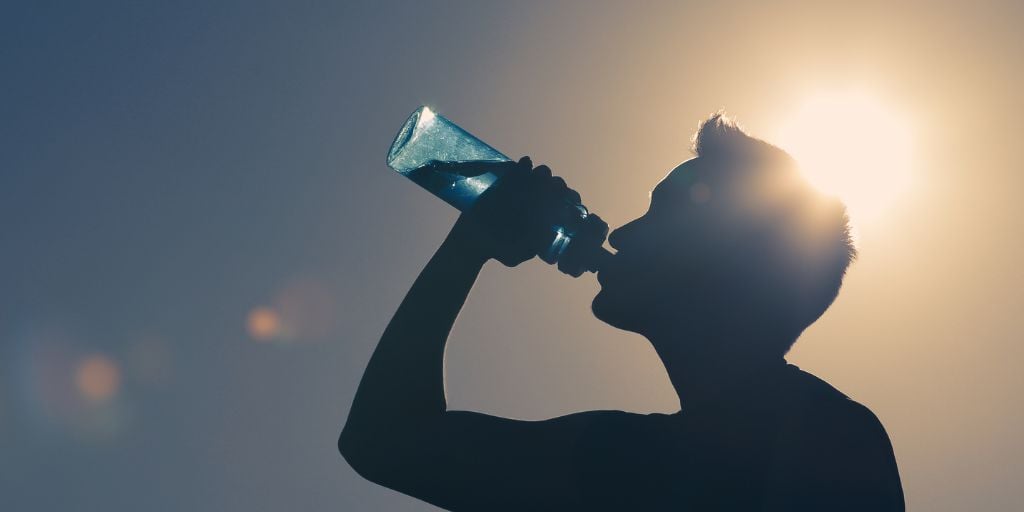
What are the benefits of going alcohol-free for 30 days? Over the course of 4 weeks, you will already start to see tremendous improvements in your physical and mental health.
Any month is a great time to try going Dry and commit to a month without alcohol.
What is A Dry Month?
A “dry month” typically refers to a period of one month where a person chooses to abstain from consuming any alcoholic beverages. This can be a personal decision, made for health or wellness reasons, or it can be part of a larger challenge or movement, such as “Dry January” or “Sober October.”
Embarking on a 30-day alcohol-free journey not only promises an array of health benefits but also opens the door to a transformative experience. Beyond the physical advantages, such as improved liver function and enhanced mental clarity, abstaining from alcohol provides a unique opportunity for personal growth. It’s a chance to reset, recalibrate, and rediscover your potential in a healthier lifestyle.
What to Know Before You Quit Drinking
It may be hard to imagine life without alcohol, but if you’re thinking of quitting cold turkey, you might want to reconsider. Quitting alcohol can be quite dangerous and even fatal for heavy drinkers.
Moreover, expect withdrawal symptoms – such as intense cravings, anxiety, and a negative mood.
If you are struggling with alcoholism or any kind of addiction disorder, it is essential that you seek medical detox before attempting to quit drinking on your own – this will ensure that you don’t suffer from any serious health complications as a result of withdrawal.
Attempting to quit alcohol without medical supervision is only safe for those who are light to moderate drinkers, who are simply looking to develop a healthier relationship with alcohol.
Benefits of Going One Month Alcohol-Free
Drinking alcohol is a social habit that our society has heavily normalized. But drinking alcohol has serious consequences for our health and well-being.
Going alcohol-free for just 30 days can be a powerful way to improve your mental health, and you’ll start to notice positive changes in your mood, appearance, and energy.
First Week Alcohol-Free
Starting an alcohol-free week can be a challenging but ultimately rewarding experience. Here are some of the benefits that you can expect:
Improved hydration – Drinking alcohol dehydrates your body, leading to dry skin and other symptoms such as headaches and fatigue.
Starting an alcohol-free week will help improve your overall hydration levels and give you a better complexion in the long run.

Improved sleep quality – Drinking alcohol before bed can suppress REM sleep, which is an essential part of the sleep cycle. This can lead to feeling unrested the next day.
After going just one week without alcohol, your sleep cycle can start to regulate, and you will experience deeper, more restful sleep, and as a result, you will feel more refreshed and less tired the next day.
Second Week Alcohol-Free
If you’re looking to improve your mental health and well-being, alcohol is not the answer. In fact, drinking can actually have a negative impact on both areas of your life.
That’s why it’s important to make sure that you drink in moderation and never go more than two weeks without alcohol consumption.
Mental clarity – Since your sleep pattern is improving, you will wake up feeling more well-rested. Increased hydration will also help with energy and brain fog.
Improved digestion – Alcohol is no friend to your digestive system, and causes inflammation in the intestines. Drinking alcohol relaxes the lower esophageal sphincter, which normally prevents acid in your stomach from backing up into your esophagus.
Around two weeks without alcohol, your stomach lining begins to return to normal. If you have struggled with acid reflux or heartburn, you may see these symptoms start to ease up.
Third Week Alcohol-Free
Reduced blood pressure – Alcohol causes a brief drop in blood pressure in the 12 hours after it is used, but then creates a prolonged elevation in blood pressure.
After around three weeks alcohol-free, your blood pressure is reduced. Reducing blood pressure can reduce your risk of stroke or developing a heart disease. Improved kidney health – Drinking alcohol can damage kidneys over time, causing an inability to function properly. After only three weeks without alcohol, your kidneys can start to heal and function properly.
Fourth Week Alcohol-Free
Improved liver health – The liver is responsible for breaking down and filtering out harmful substances in the blood – this includes alcohol. This process becomes incredibly hard on the liver, leading to scarring.
Fortunately, your liver is capable of recovering from the damage alcohol caused, and stopping drinking for just 30 days can restore your liver to its normal function.
%20(23).png?width=900&name=Blog%20Cover%20(900%20%C3%97%20300%20px)%20(23).png)
Glucose levels stabilize – Alcohol inhibits the liver’s ability to release glucose, which causes blood sugar levels to drop. Since your liver function improves after a month without alcohol, your glucose levels will also stabilize, which reduces your risk of developing diabetes.
Reduced anxiety: While you may feel anxiety as a temporary withdrawal symptom of going without alcohol, quitting alcohol will reduce your anxiety in the long-term.
Many people drink to ease their anxiety in social situations, and find that it can help them feel more confident. But remember – alcohol actually changes the brain’s chemical structure, lowering levels of serotonin, which makes people more susceptible to anxiety and anxiety disorders.
How to Go One Month Without Drinking
Drinking alcohol is a social habit that many of us have gotten used to. But is it time to break that habit? This is a question that many people are asking themselves, and for good reason.
Alcohol consumption has negative effects on our health and mental well-being. However, going 30 days without drinking can help you determine your alcohol consumption habits.
During this time, you will likely experience withdrawal symptoms, so be prepared for them. However, once you’re through with the detox period, you will be better equipped to make better decisions about drinking and alcohol consumption in general.
1. Plan Ahead for Triggers
It is important to have a plan in place before you stop drinking in order to help you combat triggers to drink. This way, you will know when and how to stop drinking without feeling the need to binge drink or engage in risky behavior.
For example, if your drinking habit is heavily associated with socializing, pay attention to when and where these situations take place so that you aren’t tempted by alcohol while surrounded by friends.
If you drink because you’re bored, plan activities for each day to avoid getting to a place of boredom.
2. Get Friends and Family Involved
Encouraging friends and family members to join you on your month-long challenge is one of the best ways to stay motivated throughout this challenge. If they don’t want to participate, ask them to sponsor you instead. This will motivate you and make sure that they are holding you accountable all the way through.
3. Find New Hobbies
For the sake of our mental health and overall well-being, it is important to find new hobbies that can keep us occupied during this month.
In order to make this happen, take some time for introspection and be honest about what interests you – whether it’s learning a new language or trying out an activity that has always looked interesting but you never took the time to focus on it.

4. Drink Mocktails
Going alcohol-free can be a challenge, but with the right drink options at hand, it’s not as bad as you think. In fact, many mocktails now taste so similar to alcoholic drinks that you’ll barely even miss them.
Being alcohol-free doesn’t have to deprive you of your social life – make some great mocktails instead!
5. Practice Self-Care
It’s easy to get caught up in the hectic pace of life and end up neglecting our mental and physical health. Here are a few ways you can practice self-care:
- journaling regularly
- checking in with your feelings
- talking to friends or family members
- making use of aromatherapy or meditation techniques,
- spending time outdoors in nature, etc.
- Exercising
- Eating healthy
Sober October: A Catalyst for Change
“Sober October” has gained popularity as a movement where participants voluntarily abstain from consuming alcohol for the entire month of October.
While the origins of this challenge can be traced back to various sources, it has become a social phenomenon embraced by people around the world. Beyond its surface appeal, Sober October serves as a powerful catalyst for change, influencing individuals physically, mentally, and socially.
Do You Need to Give Up Alcohol for Good?
Drinking alcohol can be fun and enjoyable, but it’s important to remember that it has consequences. For some people, alcohol consumption can lead to addiction and other health problems.
If you’re looking to improve your health and well-being, it may be a good idea to go alcohol-free for a while and see what happens.
The benefits of alcohol-free living are real, and they can really start to show after 90 days. If you’re experiencing many benefits of alcohol-free living and you’re feeling motivated to continue, consider extending your alcohol-free period.
If you find that after a month without alcohol, you feel confident that you are able to better manage your alcohol consumption moving forward, you may not have to quit alcohol forever.
However, if you find that alcohol is causing more harm than good in your life, you may need to seriously consider whether it has any place in your life anymore.
Signs of an Alcohol Problem
There are several tell-tale signs that can indicate an alcohol problem and if left untreated, these symptoms can worsen leading to addiction or even deadly consequences. Here are some of the most common ones:
- Unable to cut down on drinking
- Secretive about drinking.
- Experiencing craving or withdrawal symptoms when not drinking.
- Drinking as a coping mechanism.
- Often drinking to the point of blacking out or losing memory from events while intoxicated.
Treatment for Alcohol Addiction
Going alcohol-free for a month can help you to better understand your drinking habits and develop healthier drinking habits in the long run. However, if you do find yourself struggling with alcohol abuse, it is time to seek professional help.
Alcohol addiction is a difficult problem to overcome, but treatment can help.
Get involved in support groups, attend individual counseling, and seek professional treatment for alcohol use disorder.
At Aquila Recovery of Virginia, we offer an intensive outpatient program (IOP) for those who want to recover from an alcohol use disorder without greatly disrupting their lives.
If you are looking for more information about our programs, or are looking for guidance during this time, contact our alcohol addiction specialists.
Discover more from reviewer4you.com
Subscribe to get the latest posts to your email.







